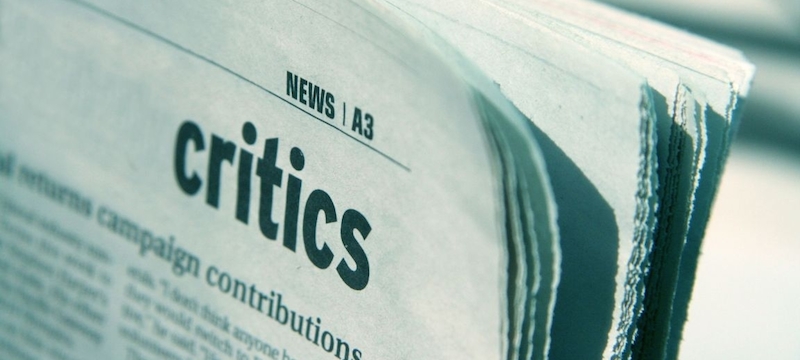
Image Source: lithub
In recent times, the concept of fact-checking has gained significant importance in the era of misinformation and fake news. Governments around the world have been exploring various methods to combat the spread of false information. One such approach is the establishment of government panels to check facts. While this may seem like a positive step towards ensuring accuracy and accountability, there are concerns about the potential misuse of such panels, particularly against critics.
The Need for Fact-Checking
The proliferation of misinformation and fake news has become a pressing issue in today's digital age. With the rise of social media platforms and the ease of sharing information, it has become increasingly difficult to distinguish between truth and falsehood. In this context, fact-checking plays a crucial role in verifying claims and providing accurate information to the public.
The Role of Government Panels
Government panels dedicated to fact-checking aim to ensure the dissemination of accurate information and hold individuals or organizations accountable for spreading false narratives. These panels consist of experts who analyze claims made by public figures, media outlets, and social media posts to determine their veracity. The intention behind such panels is to promote transparency and maintain the credibility of information sources.
Potential Misuse Against Critics
While the idea of a government panel to check facts may seem beneficial, there is a risk of it being misused as a tool to suppress dissent and stifle criticism. Governments, especially those with authoritarian tendencies, may exploit these panels to target individuals or organizations that express views contrary to their own. By labeling dissenting opinions as false or misleading, governments can undermine the credibility of critics and manipulate public perception.
Threats to Freedom of Speech
The misuse of government fact-checking panels can pose a significant threat to freedom of speech and expression. If these panels are used to selectively target critics, it can create an environment of fear and self-censorship. Individuals may hesitate to voice their opinions or engage in meaningful debates, fearing retribution from the government. This undermines the democratic principles of open dialogue and diversity of perspectives.
Safeguarding Against Misuse
To prevent the misuse of government fact-checking panels, it is essential to establish clear guidelines and ensure their independence from political influence. Transparency in the fact-checking process, including the criteria used for evaluation, sources of information, and the expertise of panel members, is crucial. Additionally, allowing for an appeals process and involving non-governmental organizations in oversight can help maintain accountability and prevent abuse of power.
Conclusion
While fact-checking is necessary to combat misinformation, the establishment of government panels to check facts should be approached with caution. It is important to strike a balance between ensuring accuracy and protecting freedom of speech. Governments must be held accountable for their actions and should not be allowed to misuse fact-checking mechanisms to suppress criticism. Only through careful implementation and safeguarding against misuse can these panels serve their intended purpose of promoting truth and accountability.